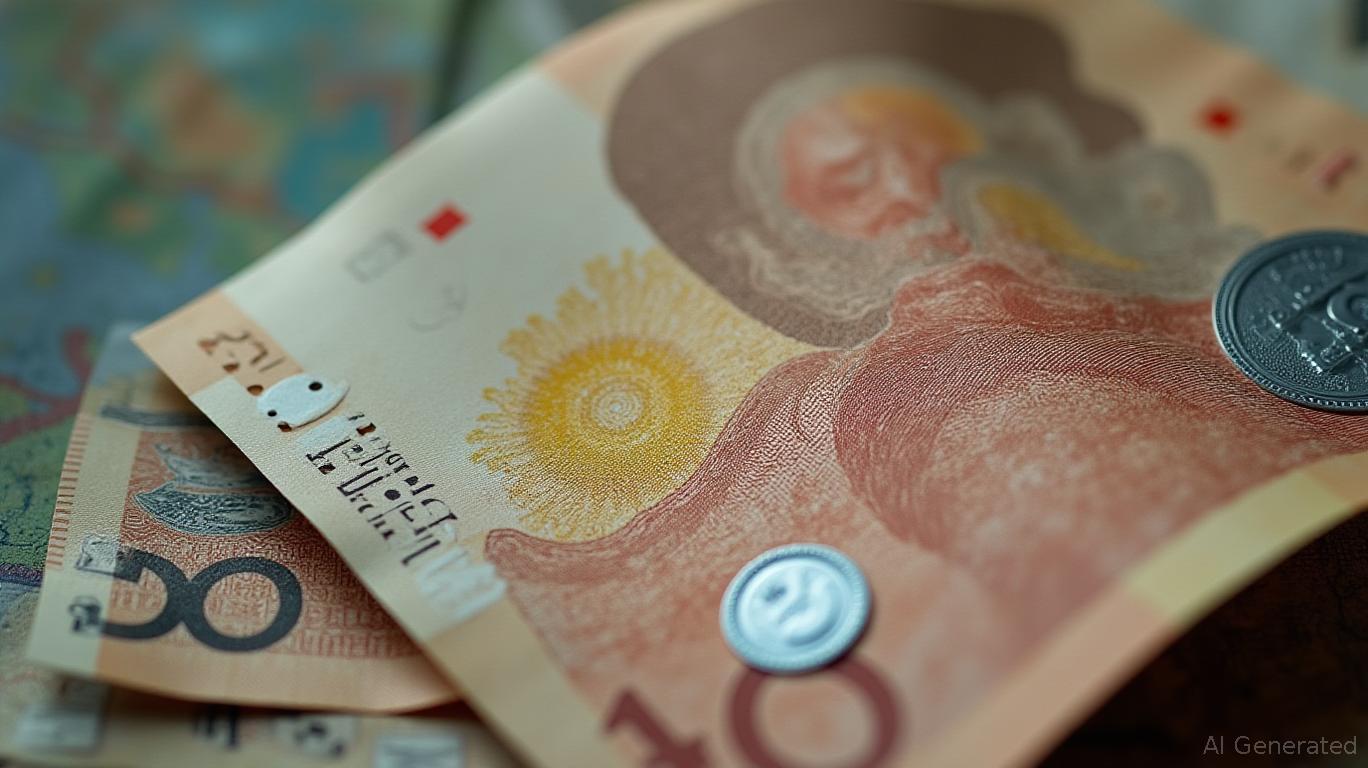Ethereum News Update: ETHzilla’s Move to Wall Street Triggers DeFi Identity Dilemma
- ETHzilla sold $40M in ETH to fund a stock buyback, reducing its share discount to NAV amid crypto-treasury sector scrutiny. - The move triggered DeFi community backlash, with critics accusing the firm of abandoning its decentralized ethos for Wall Street strategies. - Over 25% of crypto-treasury companies now trade below asset value, creating systemic risks as forced asset sales accelerate. - ETHZ shares surged 32% post-announcement, but the firm remains unprofitable with -$150.7 EPS and no revenue in la
ETHzilla Corporation (Nasdaq: ETHZ) has ignited widespread discussion within both the cryptocurrency and financial industries after offloading $40 million worth of
The ETH sale follows a controversial 1-for-10 reverse stock split on October 20 and the hiring of John D. Kristoff as Senior Vice President of Corporate Communications and Investor Relations, as highlighted in

ETHZilla’s recent moves come as the overall crypto-treasury stock strategy faces mounting challenges. Once celebrated in 2025, the practice—where firms like MicroStrategy and
The company’s financial outlook is mixed. Despite holding $400 million in ETH, ETHZilla reported zero revenue last quarter and an earnings per share of -150.7, underscoring its pre-revenue phase, as noted by GuruFocus. Its $250 million buyback plan, financed through asset sales, has yet to yield profits but has improved short-term cash flow. Additionally, the company revealed a partnership with Liquidity.io, investing $15 million for a 15% equity stake in the digital asset platform to further real-world asset securitization—an indication of its ongoing DeFi interests, according to
Experts remain split on ETHZilla’s future. While the company positions itself as a connector between traditional finance and DeFi, its stock’s recent volatility—up 17.38% on October 24—shows persistent doubts about its ability to generate revenue from its blockchain infrastructure, as observed by SimplyWall. With crypto prices still below their highs and regulatory questions unresolved, ETHZilla’s efforts to juggle crypto treasury management and stock market tactics will be closely monitored as an indicator of the sector’s resilience.
Disclaimer: The content of this article solely reflects the author's opinion and does not represent the platform in any capacity. This article is not intended to serve as a reference for making investment decisions.
You may also like
Solana News Today: Solana's Tightrope Walk: ETF Investments, Price Fluctuations, and Regulatory Challenges
- Solana attracts institutional investors via ETF inflows, Hong Kong regulatory approvals, and the Alpenglow upgrade targeting validator cost cuts. - SSK ETF sees $24M weekly inflows, while Hong Kong's first Solana ETF launches October 27, expanding global institutional access. - SOL price rebounds to $195 but faces $200 resistance; analysts highlight $220 as a key breakout threshold for further gains. - Alpenglow aims to slash 80% of validator fees by 2026, enhancing decentralization through lower entry b

Political Stalemate to Drive U.S. Debt Higher Than Italy and Greece by 2030
- U.S. public debt-to-GDP ratio will surpass Italy and Greece by 2030, per IMF forecasts, reaching 143% vs. 137% and 130%. - Trump-era tax cuts, $1T defense spending, and political gridlock drove deficits above 7% of GDP since 2025. - Italy/Greece reduced deficits via austerity and EU funds, while U.S. faces debt servicing costs exceeding education/transport budgets. - Analysts warn U.S. debt path is unsustainable without structural reforms, as political stalemate blocks spending cuts or tax hikes.

China's approach with the Digital Yuan seeks to transform the landscape of international finance
- PBOC establishes Beijing and Shanghai centers to advance digital yuan strategy, enhancing domestic infrastructure and global reach. - Digital yuan pilot transactions exceed 14.2 trillion yuan, supported by 225 million wallets, while PBOC enforces crypto bans to mitigate risks. - Dual-center model balances domestic innovation with international collaboration, expanding digital yuan adoption through commercial banks. - China’s strategy aims to reshape global CBDC perceptions, leveraging regulatory rigor an

U.S. Bets $40 Billion on Argentina's Economic Reforms as Peso Rallies and Poverty Rises
- Trump praised Argentina's Milei for a landslide election win, linking it to U.S. financial gains amid a 6% peso surge against the dollar. - U.S. Treasury's $20B currency swap and $40B total stake aim to stabilize Argentina's economy, despite 53% poverty rates and political instability risks. - Milei's austerity reforms face challenges: poverty deepening, congressional alliances needed, and potential peso collapse if reforms stall. - Markets reacted positively to the election, with Argentine bonds and sto
